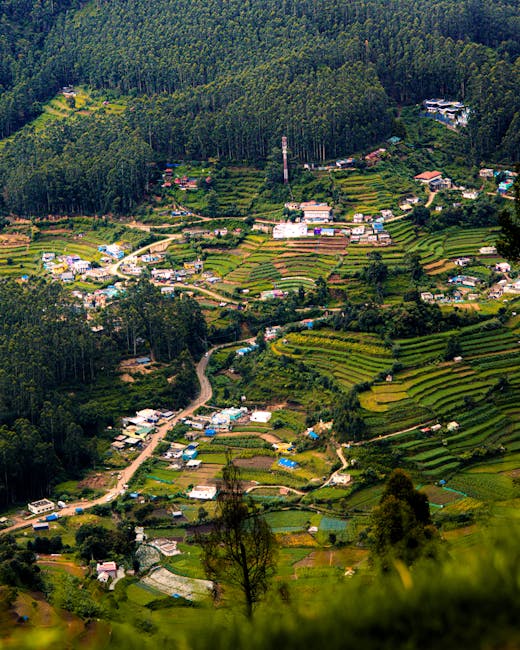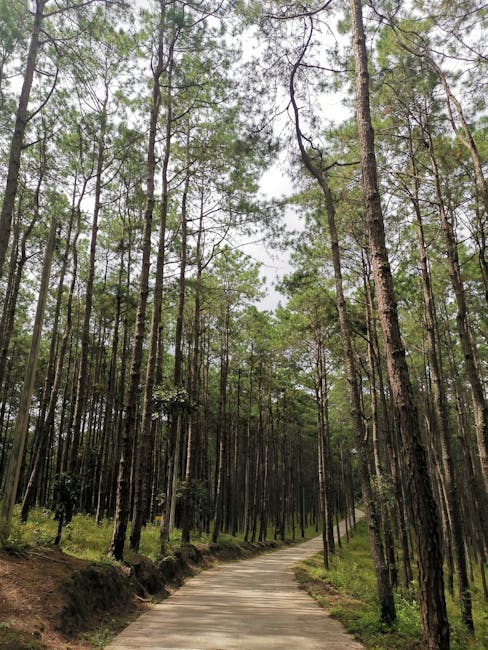Sustainable Thailand: Your Journey to Positive Impact Travel

Sustainable Thailand: Your Journey to Positive Impact Travel
Hey there, travel buddy! Let's talk about Thailand. You know, that incredible land of vibrant temples, bustling markets, breathtaking beaches, and, let's be honest, a whole lot of tourists? I've been lucky enough to explore its wonders multiple times, and each visit leaves me more in love with its culture and landscapes. But it's also made me think a lot about how we, as travelers, can minimize our impact and actually contribute positively to this amazing place. That's where sustainable travel comes in, and trust me, it's way more rewarding than just ticking off destinations on a list.
What Exactly is Sustainable Travel?

Okay, before we dive into Thailand specifics, let's clarify what sustainable travel really means. It's not just about skipping the plastic straw (though that definitely helps!). It's a holistic approach that considers the environmental, social, and economic impact of your trip. Think about it as travelling in a way that respects the planet, supports local communities, and preserves the cultural heritage for future generations to enjoy. It's about leaving a positive footprint, instead of just walking all over everything.
For me, it boils down to a few key principles:
- Environmental Responsibility: Reducing your carbon footprint, conserving resources, and protecting natural habitats.
- Social Responsibility: Respecting local cultures, traditions, and customs, and ensuring your tourism benefits the community.
- Economic Responsibility: Supporting local businesses and entrepreneurs, and promoting fair wages and working conditions.
Basically, it's about being a conscientious guest and leaving Thailand even better than you found it. Sounds good, right?
Why is Sustainable Travel in Thailand So Important?

Thailand's beauty is undeniable, but tourism has placed a significant strain on its environment and communities. Overcrowding, pollution, and exploitation are just some of the challenges the country faces. Think about those stunning beaches you see in photos. Often, they're overflowing with tourists, generating tons of waste. The coral reefs are suffering from damage caused by boat traffic and irresponsible snorkeling practices. And in some areas, local communities are struggling to maintain their traditions in the face of mass tourism.
But the good news is, you can be part of the solution! By choosing sustainable travel practices, you can help protect Thailand's natural wonders, support its communities, and ensure that future generations can experience its magic.
Making a Difference: Practical Tips for Sustainable Travel in Thailand

Alright, let's get down to the nitty-gritty. Here are some practical tips you can implement on your next Thai adventure to make a real difference:
1. Choose Eco-Friendly Accommodation
Where you stay makes a HUGE impact. Look for hotels, guesthouses, and resorts that are committed to sustainability. What should you look for? Here are a few things:
- Energy efficiency: Are they using solar power, energy-efficient lighting, and water-saving devices?
- Waste reduction: Do they have recycling programs, compost food waste, and minimize single-use plastics?
- Local sourcing: Do they source food and materials locally, supporting nearby farmers and artisans?
- Community involvement: Do they employ local staff and support local community initiatives?
Don't be afraid to ask questions! Inquire about their sustainability practices before you book. Sites like BookDifferent and Green Key can help you find certified eco-friendly accommodations. I've personally had great experiences staying in smaller, family-run guesthouses in Chiang Mai and Koh Lanta that were deeply committed to sustainable practices. They often offer a more authentic and personal experience, too!
2. Embrace Local Transportation
Instead of relying solely on taxis or tourist buses, try using local transportation options. It's often cheaper, more authentic, and better for the environment. Here are some ideas:
- Trains: Thailand has a pretty decent rail network that connects major cities. It's a scenic and relatively eco-friendly way to travel.
- Buses: Local buses are a great way to experience Thai life and get around within cities. They can be a bit chaotic, but that's part of the fun!
- Songthaews (Red Trucks): These shared taxis are common in Northern Thailand and are a fun and affordable way to get around.
- Bicycles: Rent a bicycle and explore smaller towns and islands at your own pace. It's a great way to get some exercise and reduce your carbon footprint.
Flying within Thailand should be a last resort, as it has a significantly higher carbon footprint than other modes of transportation. If you do need to fly, consider offsetting your carbon emissions through a reputable organization.
3. Eat Local and Support Local Businesses
One of the best parts of traveling in Thailand is the incredible food! But instead of always going for the touristy restaurants, try to eat at local eateries and support small businesses. Look for places that use fresh, local ingredients and prepare traditional Thai dishes. Not only will you get a more authentic culinary experience, but you'll also be helping to support local farmers and communities. Chat with the owners, learn about their stories, and discover hidden culinary gems. Trust me, the Pad See Ew from that tiny street stall will probably be way better (and cheaper!) than the one at the fancy hotel.
Also, when shopping for souvenirs, avoid mass-produced items and opt for handcrafted goods made by local artisans. Look for fair trade products that ensure the artisans are paid a fair wage for their work. Buying directly from the artisans is even better, as it cuts out the middleman and ensures they receive the full benefit of your purchase. I still treasure the hand-woven scarf I bought directly from a weaver in a small village near Chiang Rai. It's a reminder of my trip and a way to support her livelihood.
4. Reduce, Reuse, and Recycle
This one seems obvious, but it's crucial. Thailand struggles with waste management, so it's important to minimize your waste as much as possible. Carry a reusable water bottle and refill it whenever you can. Say no to plastic straws, bags, and cutlery. Bring your own reusable shopping bag and containers for takeout food. Support businesses that are actively reducing their plastic use. And whenever possible, recycle your waste properly. It takes a little effort, but it makes a big difference.
I always travel with a reusable water bottle, a bamboo cutlery set, and a foldable shopping bag. They're lightweight and easy to pack, and they help me reduce my plastic consumption significantly.
5. Respect Local Culture and Customs
Thailand is a land of rich culture and traditions, and it's important to be respectful of them. Dress modestly when visiting temples and religious sites. Remove your shoes before entering someone's home or a temple. Avoid pointing your feet at people or objects, as this is considered rude. Learn a few basic Thai phrases, such as "Sawasdee" (hello) and "Khop Khun" (thank you). Be mindful of your behavior and avoid loud or disruptive behavior in public places.
Before my first trip to Thailand, I did some research on Thai customs and etiquette. It helped me to avoid making any unintentional faux pas and to show respect for the local culture. The Thais are generally very welcoming and forgiving, but it's always better to be informed and respectful.
6. Choose Responsible Tour Operators and Activities
When booking tours and activities, choose operators that are committed to sustainability and responsible tourism. Avoid tours that exploit animals, such as elephant rides or tiger shows. Instead, look for ethical wildlife sanctuaries that focus on rescuing and rehabilitating animals. Choose tours that support local communities and provide economic benefits to them. Research the tour operator's sustainability practices before you book and ask questions about their environmental and social impact. A reputable tour operator will be transparent about their practices and happy to answer your questions.
On one of my trips, I visited an elephant sanctuary that rescued elephants from the tourism industry. It was an incredibly rewarding experience to see these magnificent creatures living in a safe and natural environment. The sanctuary was committed to ethical and sustainable practices and provided a valuable service to the community.
7. Conserve Water and Energy
Thailand is facing increasing water scarcity, so it's important to conserve water whenever you can. Take shorter showers, turn off the tap while brushing your teeth, and report any leaks to your hotel. Be mindful of your energy consumption and turn off the lights and air conditioning when you leave your room. Unplug electronic devices when they're not in use. Even small actions can make a big difference.
8. Educate Yourself and Spread the Word
The more you know about sustainable travel, the better equipped you'll be to make informed choices. Do your research before you go, read articles and books about sustainable tourism, and talk to other travelers about their experiences. And once you've had your own sustainable travel experience in Thailand, share it with others! Encourage your friends and family to travel responsibly and to support sustainable businesses. By spreading the word, you can help to create a more sustainable tourism industry in Thailand and beyond.
My Personal Experiences with Sustainable Travel in Thailand

I've tried to incorporate these practices into my own travels in Thailand, and honestly, it's been incredibly rewarding. Volunteering at a local school in a remote village, learning traditional Thai cooking from a local family, and trekking through the jungle with a local guide have all given me a deeper understanding and appreciation for Thai culture and the importance of sustainable tourism. I even learned how to make my own natural mosquito repellent from local herbs – a lifesaver!
It's not always easy, and sometimes you have to make compromises. But even small changes can make a big difference. And the best part? Sustainable travel often leads to more authentic and meaningful experiences. You connect with locals on a deeper level, you discover hidden gems, and you leave with a greater sense of purpose.
The Future of Sustainable Travel in Thailand

Thailand is increasingly recognizing the importance of sustainable tourism and is taking steps to promote it. The government is implementing policies to protect natural resources, promote responsible tourism practices, and support local communities. Many businesses are also embracing sustainability and are offering eco-friendly products and services. There's still a long way to go, but the momentum is building.
As travelers, we have a crucial role to play in shaping the future of tourism in Thailand. By choosing sustainable travel practices, we can send a clear message to businesses and the government that we value sustainability and that we're willing to support those who are committed to it. Together, we can help to ensure that Thailand's beauty and culture are preserved for future generations.
Let's Make a Positive Impact Together!

So, next time you're planning a trip to Thailand, remember that you have the power to make a positive impact. Choose sustainable accommodation, embrace local transportation, eat at local eateries, reduce your waste, respect local culture, and support responsible tour operators. It's not just about traveling; it's about traveling with intention and purpose. Let's explore Thailand's wonders while protecting its environment, supporting its communities, and preserving its culture. Let's make our journey a force for good. Safe travels, and see you in Thailand!
Post a Comment